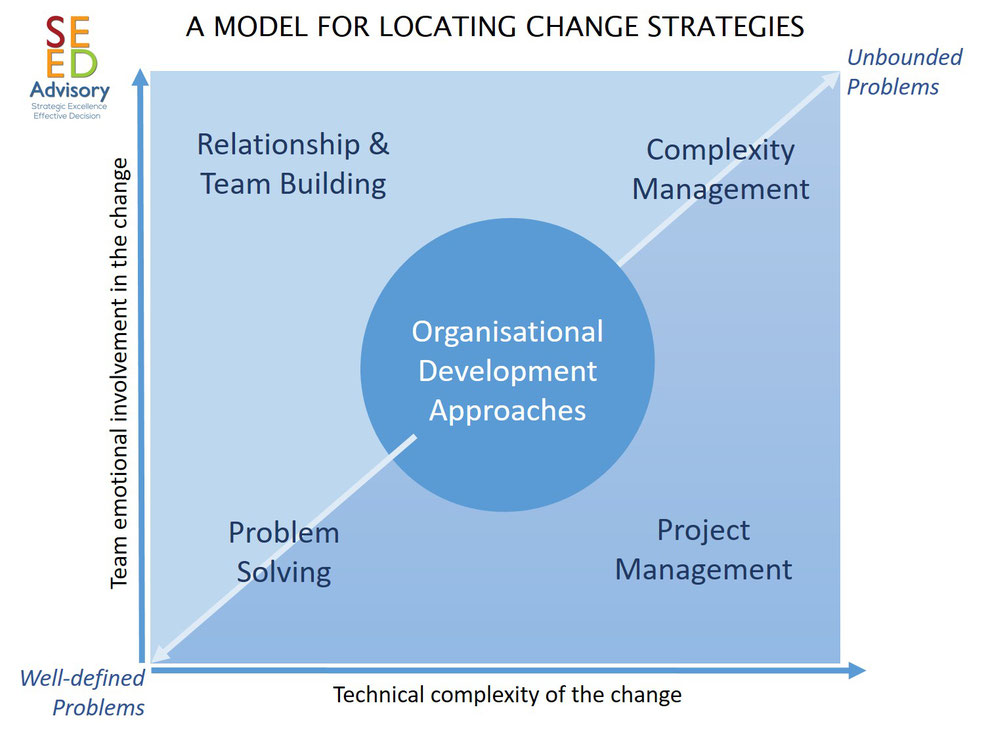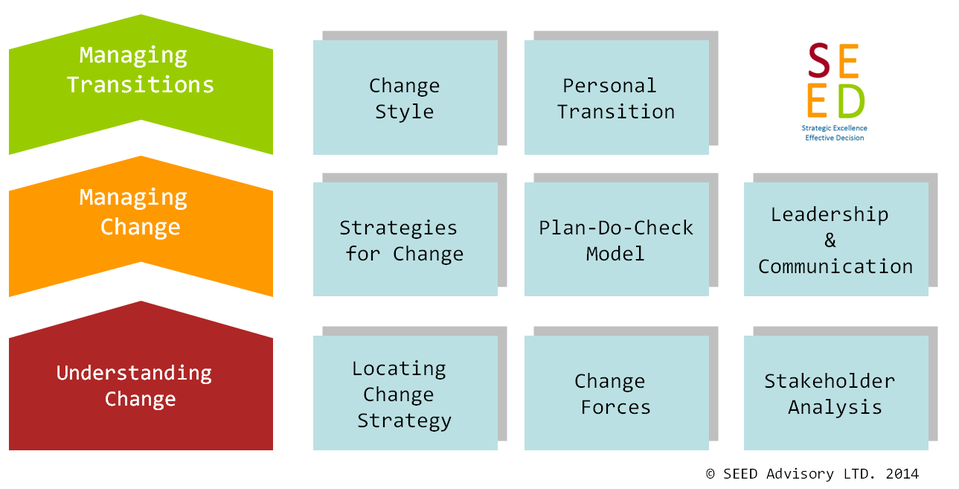
Change Management
We are highly specialised in change management projects and programs with mid-size and large organisations:
- Change strategies & change model design and analysis
- Change management process customisation
- Managing resistance to change
- Coordination of projects, programs and portfolio within the change program
- Managing business transformation through corporate culture transition
- Stakeholder analysis and influencing
- Change management training
IS it time for your organisation to assess your change management readiness?
The first step in understanding the change is to make sure you are choosing the adequate change strategy. As an example, engaging in a broad change management coaching while management challenges can be treated with classical problem solving techniques would be an overkill:

Problem Solving: Problem solving in the workplace is critical to business survival and is the source of continuous improvement. There are many different problem solving techniques, but they are all based around these elements:
- Defining and evaluating the problem
- Identifying or creating options
- Evaluating and selecting options
- Testing options and implementing an option as a solution
Change Management: describes the complex and multi-dimensional set of behaviours and processes that are necessary to help an organisation - and the individual people within it - to move from "where we are now" to "where we want to be".
Complexity Management: Complexity is a natural outcome of a company’s success. As companies grow, they enter new markets, expand their product lines and acquire new customer segments. Along the way, they build up their organisational, process and IT infrastructure to support that growth. Taken individually, each decision makes rational sense, but in aggregate, they create exponential growth of the "nodes"–points where business units, functions, geographies and layers of management have to interact to make and execute critical decisions. This often becomes the root cause of bearish growth, high costs and poor returns.
Change Management Techniques
We apply the most adapted change management techniques and frameworks along the change management process and identifies the right components to be used to face management challenges:
Linking Change & Strategy
Organisational Development - OD - is an umbrella term which refers to the broad philosophy of change and is used for organisation-wide and more specific change interventions.
The characteristics of Organisational Development are:
• it is a broad, sustained medium for the development of long-term strategy, it is multi-level and multi-method
• it draws on the findings and methods of behavioural sciences
• it is process-oriented rather than goal-oriented
• it involves leadership and facilitator roles
• it is a participative process
An Organisational Development approach is appropriate in such circumstances as:
• organisational failure to achieve objectives
• attempts to improving market share or capacity
• M&A and post-M&A interventions
• New technology introduction with changes in structures, systems etc.

